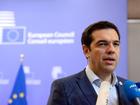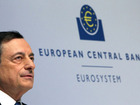Greek Prime Minister Alexis Tsipras on Tuesday battled to hold his ruling Syriza party together as opposition mounted to a shocking new bailout deal that requires Athens to push through draconian reforms within two days.
With around 30 hardline Syriza lawmakers threatening to oppose the latest tough reforms demanded by Greece's international creditors, Tsipras faced the unenviable task of turning to pro-austerity opposition parties to push the deal through parliament by Wednesday.
 Full Story
Full Story
Iranian trade will be boosted by a lifting of nuclear-related sanctions but the country needs billions of dollars of investment, and meaningful economic gains are likely to take many months.
The deal between Iran and world powers announced in Vienna Tuesday paves the way to an opening for international companies who have long seen the Islamic republic as an untapped market.
 Full Story
Full Story
Britain's annual inflation rate turned flat in June from the previous month on the back of falling clothing and food prices, official data showed Tuesday.
"The Consumer Prices Index (CPI) was unchanged in the year to June 2015, that is, a 12-month ratuse of 0.0 percent, down from 0.1 percent in the year to May," the Office for National Statistics (ONS) said in a statement.
 Full Story
Full Story
Investor sentiment in Germany fell to its lowest level in eight months in July, but the outlook for Europe's biggest economy remains positive, a leading survey found on Tuesday.
The widely watched investor confidence index calculated by the ZEW economic institute slipped by just 1.8 points to 29.7 points in July, its lowest level since November 2014, ZEW said in a statement.
 Full Story
Full Story
Europe's battered financial sector is showing further signs of mending and banks are increasingly competing for custom by lowering credit standards, a key European Central Bank survey showed on Tuesday.
The ECB said its quarterly bank lending survey showed that banks are easing credit standards for loans to enterprises, an encouraging sign, since the chronic weakness of credit activity in the euro area has previously been blamed for the absence of any noticeable recovery in the 19 countries that share the single currency.
 Full Story
Full Story
U.S. Treasury Secretary Jacob Lew hailed the deal between Greece and its official creditors Monday as a crucial step toward rebuilding trust and reviving the Greek economy.
"The agreement provides a basis for restoring trust among the parties and creates the conditions for a path forward for Greece within the eurozone, which is in the best interests of Greece, Europe and the global economy," Lew said in a statement.
 Full Story
Full Story
U.S. Democratic presidential frontrunner Hillary Clinton promised Monday to raise incomes of hardworking Americans and rein in excesses on Wall Street in the first major economic policy address of her 2016 campaign.
The 67-year-old former first lady, senator and secretary of state spent nearly an hour outlining a three-pronged strategy to boost long-term growth, as unemployment continues to languish above five percent.
 Full Story
Full Story
This explanation is provided by Bnooki.com which is a free platform specialized in comparing and facilitating access to loans provided by Lebanese banks in Lebanon.
It is already a hassle to figure out which Lebanese bank will offer you the best conditions to apply for a housing loan, not to mention the paperwork requirements that can be quite a headache.
 Full Story
Full Story
Dutch beer giant Heineken announced Monday it has opened a multi-million-dollar brewery in Myanmar, seeking to cash in on one of Asia's high-growth markets.
"Heineken has opened a 60 million dollar (53 million euro) brewery in Myanmar, which has a total capacity of 330,000 hectoliters per year and which will directly employ more than 200 local people," it said in a statement issued from Amsterdam.
 Full Story
Full Story
U.N. Secretary-General Ban Ki-moon on Monday called for "flexibility and compromise" at a development financing summit that opened in Ethiopia's capital and is seen as crucial for efforts to end poverty and tackle climate change.
"I urge world leaders and ministers gathered here this week... to exercise flexibility and compromise. Let's put aside what divides us and put aside our self-interest in favor of working together for the common well-being of humanity," Ban told the opening of the summit.
 Full Story
Full Story



